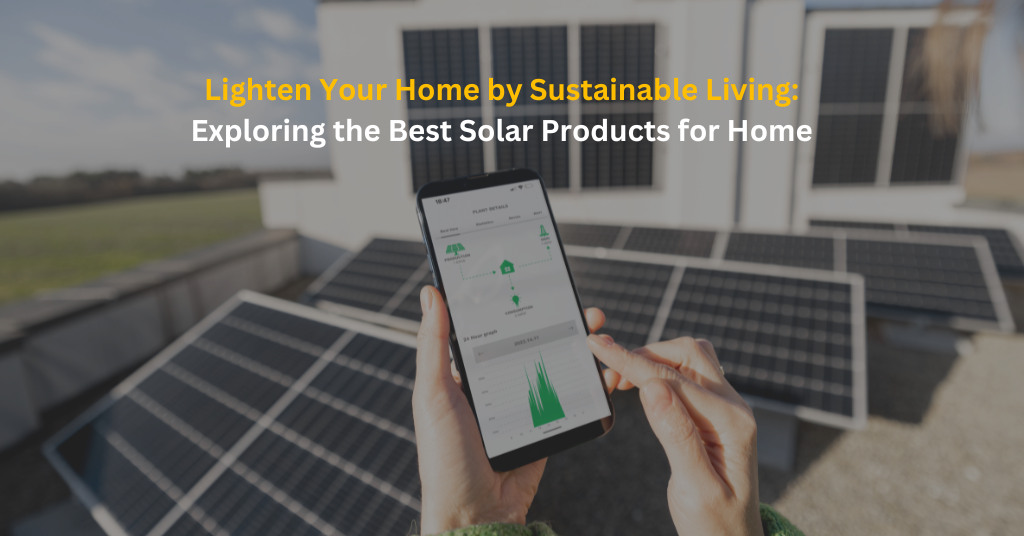Commercial solar panel systems have gained enormous popularity quickly, and almost everyone in the world is aware of them. Not only are we aware that commercial solar panel systems exist, but we also know what benefits they provide. In the near future, businesses are taking a step forward because of these benefits. They are a draw for eco-aware consumers in addition to being a practical energy solution. People are getting more and more concerned about the environment as time goes on, which is why commercial solar installations are on the rise. These installations not only help businesses save money but also boost their potential sales and environmental friendliness.
Government Support for Sustainable Energy in Business
The rise of sustainable energy solutions that have increasingly benefitted the environment has caught the eye of the government. The increasing benefits have encouraged the government to support businesses that invest in solar panel service providers by providing them with incentives and tax relief.
The government’s focus has shifted to supporting as many businesses as possible in order to create a cleaner and healthier environment as a result of the reduction in carbon footprint. The government encourages companies to convert to commercial solar panel systems and provides financial assistance for easy installation.
Here are ways the government supports businesses that switch to commercial solar panel systems:
- Financial Incentives: Companies that invest in renewable energy systems can receive tax credits from the government. By lowering a company’s tax burden, these credits increase the financial appeal of using renewable energy. Companies can apply to government organizations for grants and subsidies to help with the upfront costs associated with installing and buying renewable energy equipment. These incentives have helped businesses switch to cleaner energy by lowering their financial stress.
- Regulatory Policies: Governments set targets for renewable energy, which indicate that a specific proportion of energy production must originate from renewable sources. These goals stimulate the market for renewable energy and lure companies to make investments in environmentally friendly technologies. Governments speed up project timelines and minimize bureaucratic obstacles by streamlining the permitting and approval processes for renewable energy projects. Policies are put in place to make it easier to incorporate renewable energy sources into the current electrical grid. This covers support for energy storage solutions as well as incentives for grid upgrades to incorporate renewable energy sources.
- Research and Development Funding: Governments set up a trust fund for projects aimed at advancing renewable energy technology through research and development. Innovations like more advanced wind turbines, more efficient solar panels, and advances in energy storage are supported by this funding. Governments support programs for technology transfer that make it easier for R&D discoveries to be commercialized and give companies access to cutting-edge renewable energy solutions.
- Net Metering and Feed-in Tariffs: Businesses using renewable energy systems can use net metering programs to sell excess energy back to the grid, reducing their electricity costs. As a result, businesses are encouraged to produce more renewable energy than they use. Feed-in tariffs ensure a set payment for business-generated renewable energy that is fed into the grid. As a result, producers of sustainable energy have a steady source of income, which increases the appeal of investing in commercial solar panel systems.
- Campaigns: To inform businesses about the advantages of renewable energy, such as cost savings, environmental sustainability, and energy independence, governments launch public awareness campaigns. Businesses can learn about financing options, best practices for implementation, and renewable energy technologies through workshops, seminars, and training programs.
- Partnerships and Collaborations: Governments encourage collaboration, innovation, and knowledge sharing by forming partnerships among industry associations, research institutions, and sustainable energy companies. To benefit companies that operate in international markets, governments participate in international cooperation and agreements to exchange best practices, technologies, and policies pertaining to renewable energy.
Businesses Benefited From Commercial Solar Panel Systems

Solar energy has benefited a wide range of enterprises, from manufacturing to agriculture, cities to villages; solar panels are widely distributed all around the world.
- Manufacturing: The industry most benefited from commercial solar panel systems is manufacturing. The owners of the businesses were often concerned about the rising cost of electricity, primarily because their large machinery increased operating expenses and produced little to no savings. Not only has solar power decreased electricity bills, but it has also increased savings and allowed us to store enough energy for future use, thanks to the assistance of solar panel service providers.
- Large retailers: Supermarkets and shopping malls have greatly benefitted from solar solutions. Due to the constant need for electricity for power, lighting, and refrigeration, utility bills have skyrocketed. Solar panels have made life a lot easier by allowing electricity to be used continuously, 24 hours a day, with no stress from utility bills.
- Health care: An eco-friendly hospital not only benefits from low cost and reduced electricity bills but also build a good image in society showing their care for patients.
- Agriculture: Due to vast land and substantial energy need agriculture operations are best fit for commercial solar panel systems. As farmers have a very low pay-scale, utility bills for their heavy machinery become a huge burden hence solar solutions benefit them on a huge scale by lowering their stress of loaded bills.
- Office buildings: Solar panels not only benefit offices by providing constant, free-of-cost electricity that is long-term but also improve their attractiveness in the real estate market.
Industries’ Challenges in Adopting Sustainable Energy
With rising benefits come challenges that are faced by industries until they finally succeed:
- Upfront Costs: Industries may find it financially difficult to adopt sustainable energy technologies because they often require a sizable upfront investment, such as solar or wind turbines.
- Technological Complexity: It could be technically difficult and expensive to integrate sustainable energy systems into current operations and infrastructure.
- Regulatory and Policy Uncertainty: The sustainable energy sector may encounter uncertainties in relation to evolving policies, incentives, and regulations, which could affect long-term planning and investment decisions.
- Intermittency and Reliability: Solar and wind energy are examples of intermittent renewable energy sources that rely on the weather. Businesses require dependable backup systems or energy storage options to guarantee a steady flow of energy.
- Infrastructure Limitations: Inadequate infrastructure can make it more difficult for industries to adopt sustainable energy solutions. Examples of this include grid capacity and electric vehicle charging infrastructure.
- Lack of Awareness and Education: Certain industries might not be aware of the advantages and opportunities linked with sustainable energy, resulting in reluctance or restricted funding for renewable technologies. Every difficult moment yields a happy fruit. We have achieved long-term peace, lower expenses, and a thriving business after overcoming a few obstacles. While there are challenges associated with sustainable energy, the advantages are numerous and well worth the wait. Although they are pricey, commercial solar panel systems are an investment that only needs to be made once and with no need for repair for decades.








